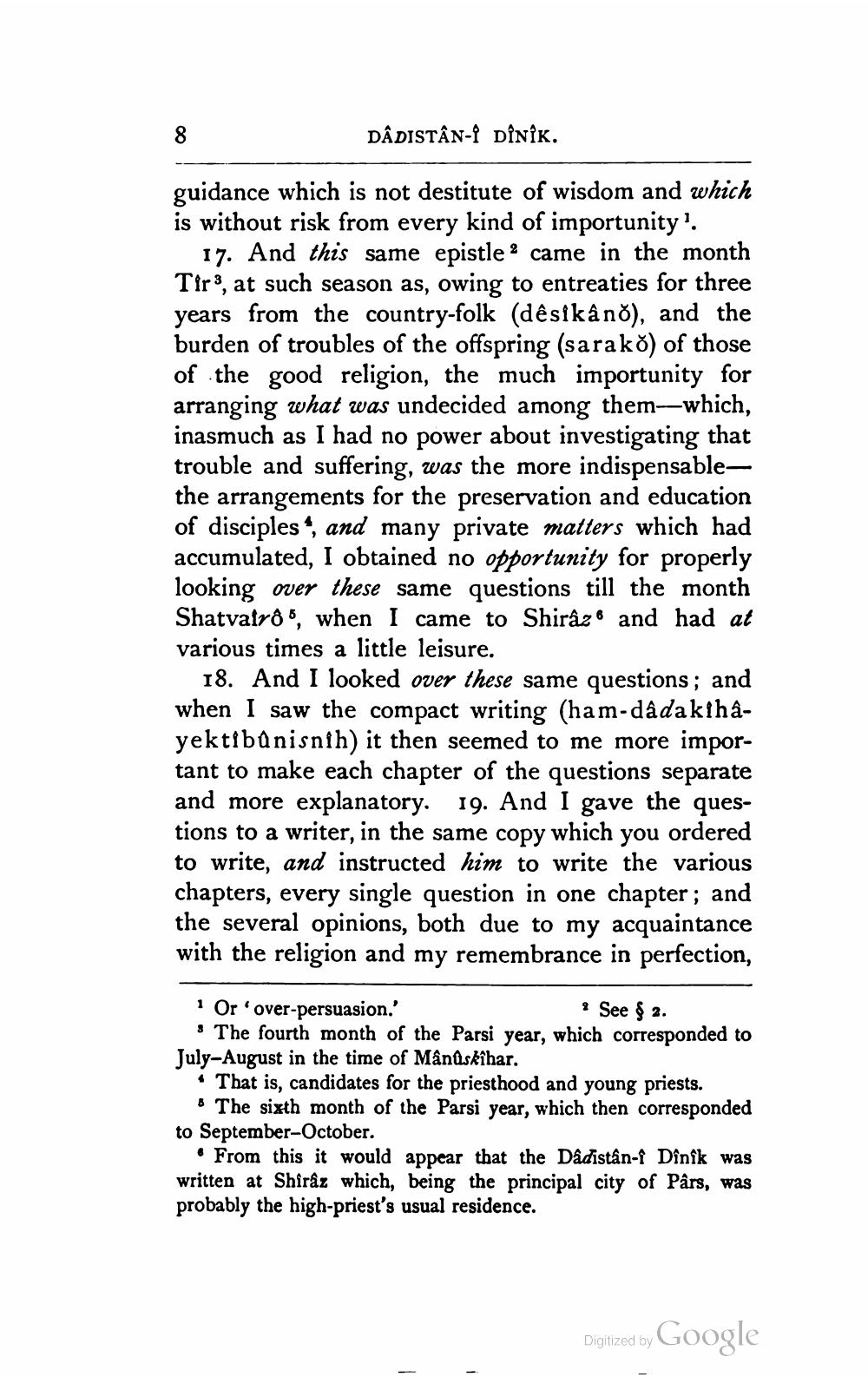________________
DÂDISTÂN-I DİNİK.
guidance which is not destitute of wisdom and which is without risk from every kind of importunity'.
17. And this same epistle came in the month Tir3, at such season as, owing to entreaties for three years from the country-folk (dêsîkâno), and the burden of troubles of the offspring (sarako) of those of the good religion, the much importunity for arranging what was undecided among them-which, inasmuch as I had no power about investigating that trouble and suffering, was the more indispensablethe arrangements for the preservation and education of disciples, and many private matters which had accumulated, I obtained no opportunity for properly looking over these same questions till the month Shatvairo, when I came to Shirâz and had at various times a little leisure.
8
18. And I looked over these same questions; and when I saw the compact writing (ham-dâdakthâyektibûnisnih) it then seemed to me more important to make each chapter of the questions separate and more explanatory. 19. And I gave the questions to a writer, in the same copy which you ordered to write, and instructed him to write the various chapters, every single question in one chapter; and the several opinions, both due to my acquaintance with the religion and my remembrance in perfection,
1 Or 'over-persuasion.'
2 See § 2.
The fourth month of the Parsi year, which corresponded to July-August in the time of Mânîskîhar.
That is, candidates for the priesthood and
young priests.
The sixth month of the Parsi year, which then corresponded to September-October.
From this it would appear that the Dâdistân-î Dînîk was written at Shîrâz which, being the principal city of Pârs, was probably the high-priest's usual residence.
Digitized by Google




